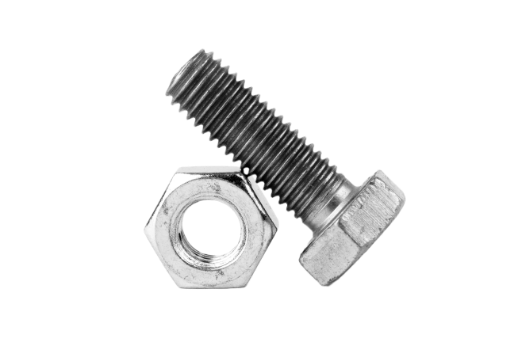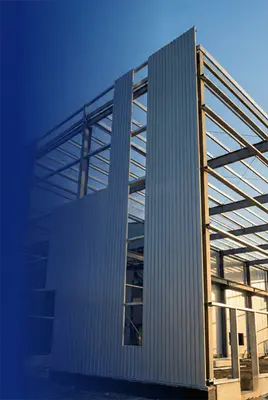
Using the correct type of screw is fundamental to the success of any building project. Comparing construction screws vs exterior screws reveals distinct features and applications for each, and knowing these differences can save time and improve durability.
This guide explores their materials, coatings, and uses to help you make the right choice for your project.
Defining Construction Screws
Construction screws, also referred to as structural screws, are a staple in building projects that require strength and stability. They are crafted to handle high-stress applications, making them a popular choice for professional builders.
Materials
Construction screws are typically made from hardened steel or stainless steel. Hardened steel offers exceptional tensile strength, making these screws ideal for framing and other load-bearing tasks. Stainless steel, while slightly less strong, provides moderate corrosion resistance for specific indoor applications.
Coatings
These screws often feature zinc coatings that provide basic corrosion protection. While suitable for interior use, zinc coatings may not hold up well in outdoor environments where exposure to moisture is common.
Design Features
Construction screws are known for their aggressive threading, which ensures a strong grip in dense materials. Many also feature self-drilling tips, eliminating the need for pilot holes and speeding up installation. They come in various head styles, including flat, pan, and hex heads, to accommodate different fastening needs.
Common Applications
Construction screws are primarily used in framing, structural assemblies, and other indoor load-bearing applications. They excel in dry environments but are less effective in outdoor settings or with pressure-treated wood due to potential chemical reactions.
Defining Exterior Screws
Exterior screws are engineered to withstand the challenges of outdoor environments. Their composition and coatings ensure long-term durability, even in harsh weather conditions.
Defining Metal Fasteners
Materials
Made from stainless steel or coated steel, exterior screws are designed to resist rust and corrosion. This makes them a reliable choice for projects exposed to moisture or chemicals.
Coatings
Unlike construction screws, exterior screws feature advanced coatings like ceramic or polymer. These finishes offer long-lasting protection against moisture, rust, and other outdoor conditions.
Design Features
Corrosion-resistant finishes on exterior screws help ensure compatibility with treated lumber and extend performance in outdoor conditions.
Common Applications
Thanks to their resistance to rust and strong structural performance, exterior screws are ideal for outdoor construction exposed to the elements.
With a clear understanding of their individual features, it's time to explore how construction screws compare to exterior screws across key factors like materials, coatings, and design.
How Construction Screws Compare to Exterior Screws
When comparing construction screws vs exterior screws, several important distinctions emerge. Each type is tailored to specific applications, and understanding these differences will help you make an informed decision.
Material Composition
Construction screws are designed for strength, utilizing hardened steel for high-load tasks. Exterior screws prioritize corrosion resistance, relying on stainless or coated steel for durability in outdoor environments.
Coatings
Zinc coatings on construction screws provide basic protection but are not suitable for prolonged outdoor exposure. Exterior screws, by contrast, feature ceramic or polymer coatings that offer superior resistance to moisture and chemicals.
Design and Strength
Construction screws are thicker and heavier, making them ideal for interior structural applications. Exterior screws are optimized for outdoor use, with features like clean-threading to prevent wood splitting.
Interior Construction Screws vs Exterior Screws
When weighing the choice between interior construction screws and exterior screws, it’s essential to consider both the project’s environment and the materials being used.
Interior Construction Screws
These screws are perfect for indoor applications, providing strong fastening without advanced corrosion protection. However, they are unsuitable for outdoor use, as exposure to moisture can cause rust and structural failure.
Exterior Screws
Exterior screws, while designed for outdoor environments, can also be used indoors. Their advanced coatings make them more expensive, but their versatility and durability in humid or moist settings justify the investment.
Considerations
Using interior construction screws outdoors often leads to rust and weakened performance. Exterior screws are a more versatile option, especially for environments exposed to varying weather conditions.
Selecting the Right Screw for Your Project
Choosing between construction screws vs exterior screws requires careful consideration of the project’s specific needs. Here are some factors to keep in mind:
- Environment: Outdoor projects require corrosion-resistant screws, while indoor tasks may not need these features.
- Materials: Ensure the screws are compatible with the materials you’re working with.
- Load Requirements: For heavy-duty tasks, construction screws provide the necessary strength, while exterior screws are better for outdoor durability.
- Budget: While exterior screws are often more expensive, their long-term durability can offset maintenance costs.
Selecting the right screw will ensure your project’s longevity and cost-effectiveness.
Rely on Fastener Systems for Reliable Screw Solutions
Fastener Systems offers a comprehensive range of screws designed for both indoor and outdoor projects. Whether you’re building a deck, framing a structure, or working with treated lumber, our screws deliver the strength and durability required for lasting results.
Contact us today for more information.

